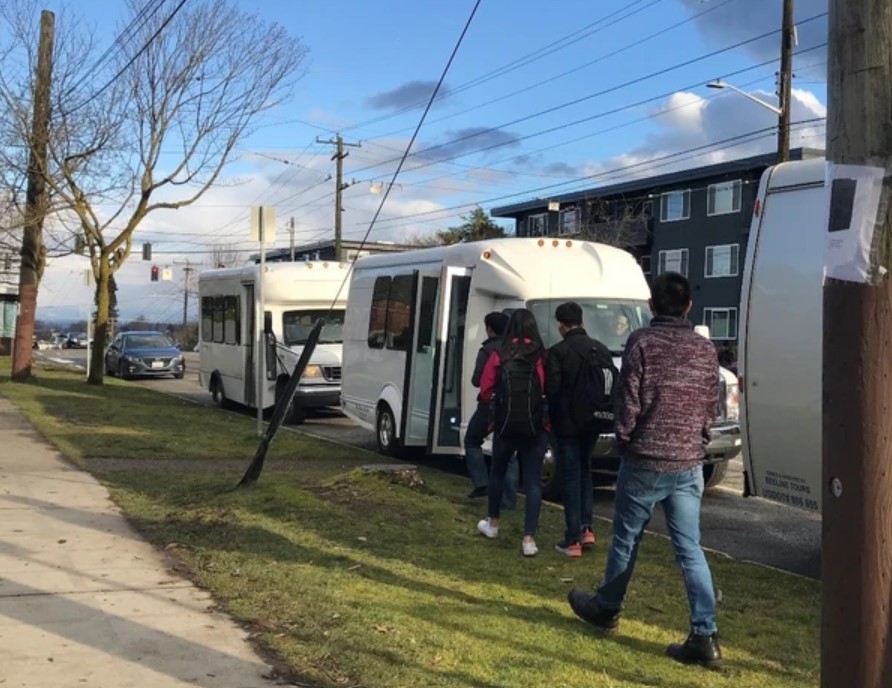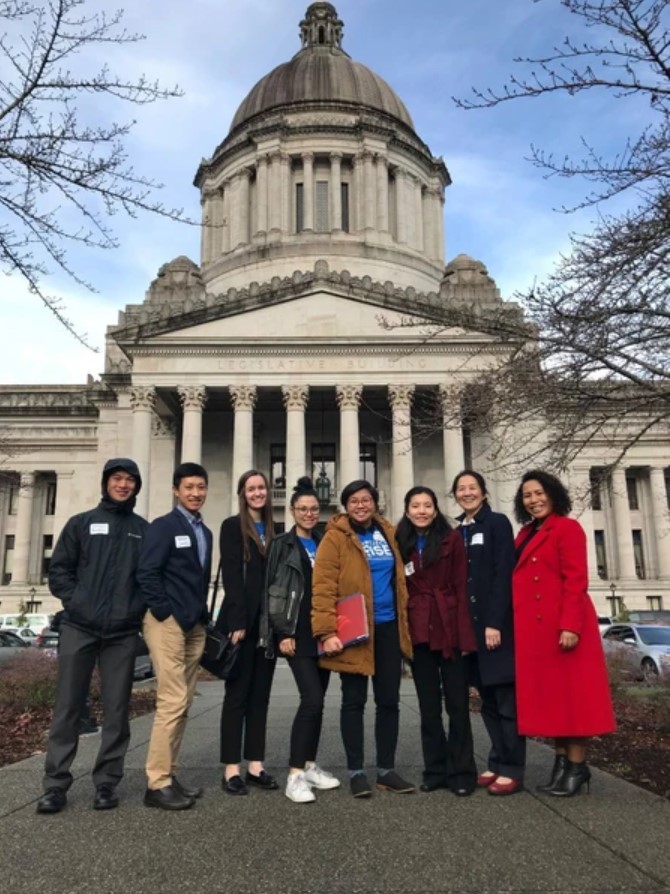Vietnamese Friendship Association (VFA) held its first Pride celebration at the Seattle World School this June. Students had rainbow temporary tattoos all over their faces and looked at posters showing Prides from around the world. The event was an opportunity for the newly-arrived immigrant and refugee middle and high school students served by the organization to have fun with each other and with the staff that they had built relationships with over the last school year. It was the first Pride event for many of them but it was also a first for VFA, who officially started serving middle schoolers in the fall of 2018. This is a big shift for the organization, which had previously welcomed younger students if they chose to come but had little dedicated programming for them.
Through the Best Starts for Kids Out-of-School Time (BSK OST) Initiative, which they were a part of through the end of the 2018-2019 school year, VFA has been able to formally expand into middle school programming. Moreover, the year VFA spent in the BSK OST cohort was an important “research year”, which they’ve described as a testing ground for models and strategies they’ve long been imagining but were previously unable to implement.

Before the BSK OST initiative provided VFA with flexible funds that they knew they wanted to direct towards transportation, it had previously been very challenging for VFA to ensure youth could safely move between the program and their homes. Kids were either tasked with traversing their new city by bus or had to rely on a guardian to pick them up. This meant program hours were kept short, and the participants were sometimes in vulnerable situations. VFA intended to partner with the Seattle School District to arrange for dedicated yellow busses to serve their BSK program but the bus drivers’ strike, which eventually secured expanded benefits and comprehensive health coverage for drivers and their families, caused the organization to rapidly change its plan. They found themselves competing with the likes of Amazon and Microsoft for private fleets but were able to land a contract with a company for three 14-seater charter vans.
James Hong, outgoing Executive Director of VFA, has been frustrated with many funders’ focus on more, new programming. He and his team have long maintained that they can’t serve the kids who need them if safe, efficient, and reliable transportation isn’t there. Addressing the root cause of inequitable program access, the ability to even get in the door, by securing transportation with BSK OST funds meant that the organization could finally demonstrate quantifiable benefits to this building block of program infrastructure. On the days with secured charter vans, VFA saw ten times more youth in their programs!
Though the end of their BSK contract means they currently don’t have the funding to maintain the van service, VFA knows that this data is crucial for advocating that future grants go towards basic needs of programs rather than continuously adding more services on a stressed foundation. BSK OST dollars also made it possible for a staff member to dedicate time and energy to managing these new transportation efforts. Because of the groundwork laid over the past year and a half, VFA can now explore how they could connect their youth to the light rail and then to King County’s Via service.
This short-but-sweet time that VFA had with the BSK initiative generated curiosity and excitement in other aspects of their program. They met and built relationships with the other BSK OST cohort members, and enjoyed the camaraderie and familiar faces when the grantees would convene at trainings and events. They also got to learn with and from organizations that sometimes did very similar and sometimes very different work– which was useful, given the particular focus of the initiative: though VFA were veterans of our Quality Improvement processes who have had a longstanding relationship with the Program Quality Coach SOWA paired them with, the Social-Emotional Learning component of our cohort offered many new learning opportunities.

Like many organizations, VFA was pleased to know that they were already employing many high-quality SEL practices– but there are also so many new practices to wrestle with. Sometimes, the version of SEL that is promoted in the youth development field reinforces dominant-culture values and norms. How can an organization like VFA, which works with immigrant and refugee populations, support its students in ways that are culturally relevant? And how are external entities perceiving their model?
For example, literacy efforts are an important component of the SEL program quality assessment tool that SOWA employs. There’s a tension between what literacy is assumed to mean, and the reality of running a program where ninety-eight percent of the participants are English-language learners– is the program not inherently promoting literacy? The “convener model” they have with their outside partners also presents a challenge. How can VFA “translate” their efforts to utilize high-quality practices when in program with people who are contractors, such as the drivers of the vans who don’t typically work with kids?
Furthermore, they are feeling how challenging it is to clearly divide their students into their middle school or high school programs. Should it be by age, language proficiency, time in the country, sibling relationships, cultural context? The divisions aren’t easy in newly-arrived ELL students, as some high school youth have the same academic profile as the middle schoolers but have different developmental needs.
It’s a lot to stew on, and VFA seems well-equipped to metabolize their last 18 months and strategically plan their next efforts. Tamthy Le, Associate Director, joked that now she knows how to ensure full-time program staff has enough work as the staff is currently as big as it’s ever been. One person was able to function as the case manager of the high-school program, while another took on supporting the middle school program, transportation coordination, and food access work. Through this continued exploration of how to meet the basic needs of their youth and their program, VFA has now applied for and received funding through the City of Seattle for a part-time position to focus solely on food access. The Food Access Grant is funding a half-time Community Resource Navigator who will continue to make sure students and families have access to healthy, culturally relevant foods during VFA programming and on the weekends or long breaks.
It’s not goodbye, it’s see you later. VFA has been part of the SOWA family for a long time and is still a part of the BSK learning community despite their contract ending in June. James Hong’s departure also marks a thoughtful period of transition for the organization. They’ve built infrastructure, they’ve collected research, and they have a plan. With exciting announcements on the horizon, VFA is poised to grow its incubator of joy and resilience to the benefit of our whole community. We’re honored to continue our relationship in this new form, and we can’t wait to see what’s next!
